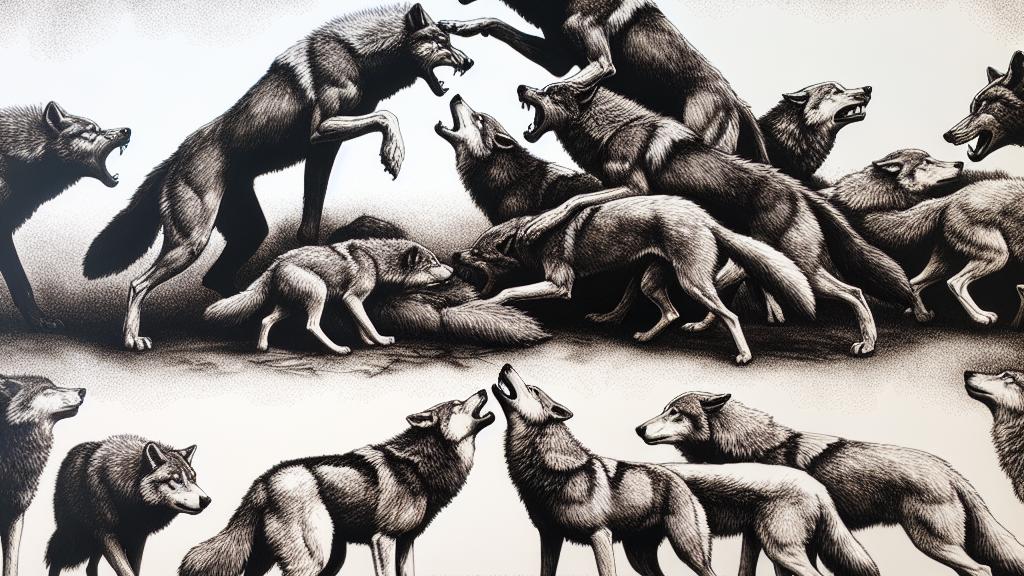Understanding the Alpha Wolf Concept and Its Misinterpretations
Overview
- The alpha wolf concept came from misconstrued studies of wolves in captivity.
- New research reveals that wild wolf packs are typically family units, not hierarchies.
- This misinterpretation influences societal views on leadership and gender roles.

The Origin of the Alpha Wolf Myth
The concept of the 'alpha wolf' emerged from the influential studies of Rudolf Schenkel in the mid-20th century. His research focused on captive wolves, where he observed seemingly dominant individuals exerting control. Picture a scene where fierce wolves clash for supremacy, a thrilling image that captivated audiences. However, this striking portrayal oversimplified the true nature of wolf interactions and created a myth that inaccurately defined wolf behavior. We now know that these dynamics did not accurately reflect wild wolves, whose social structures are far more nuanced and familial.
What Research Reveals About Wild Wolves
In stark contrast, recent scientific studies have illuminated an astonishing truth: most wild wolf packs are actually family clans composed of a breeding pair and their offspring. L. David Mech, a noted biologist, observed these family units in their natural habitats and discovered a world of cooperation rather than competition. For example, adult wolves work together to protect and feed their young, illustrating profound family bonds much like those found in our own communities. Furthermore, conflicts over food are infrequent, as these wolves engage in behaviors that nurture and support one another. Such findings challenge the notion of dominance and showcase a more compassionate side of wolf social structures.
Impact on Human Leadership Perspectives
The misconception surrounding the alpha wolf has woven itself into our cultural fabric, shaping how we perceive leadership. The idea that strong leaders must be domineering echoes through literature and media, fostering unrealistic expectations. Writers like Anthony David Adams draw attention to the consequences of these beliefs within workplaces, where the alpha mentality can create toxic environments. Employees, akin to wolves feeling cornered in captivity, may find themselves in high-stress situations that breed anxiety and dissatisfaction. This not only stifles creativity but also discourages collaboration, two ingredients essential for a thriving workplace.
Moving Forward: Rethinking Leadership
As we unpack the alpha wolf myth, we open the door to reimagining leadership in our society. Imagine a workplace thriving on mutual respect and teamwork, much like a wolf pack caring for its young. Adams argues that shedding the alpha mentality requires a refreshing approach—one that embraces empathy, open dialogue, and shared goals. By creating an environment where everyone’s voice is valued, organizations can mirror the cooperative nature of wolf family dynamics. This transformation not only enhances employee satisfaction but also cultivates an atmosphere ripe for innovation and growth. Let’s take a cue from the wolf: family matters, cooperation excels, and thriving together leads to success.

Loading...